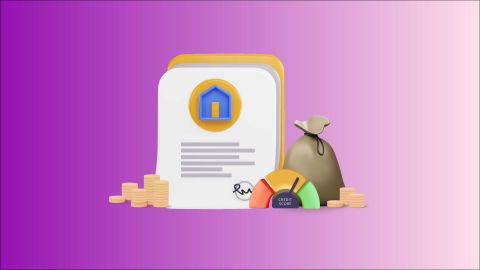Following the RBI mandate in April 2012, lenders have stopped charging foreclosure fees to borrowers who have a home loan on a floating rate of interest. Earlier, foreclosure charges included a hefty 5% or more of the principal outstanding, which made repaying your home loan earlier than your chosen tenor quite expensive. So, if you are thinking of early repayment of your home loan because that these charges no longer exist, stop to consider if the move is right for you.
Also, remember that if you have a home loan at a fixed rate of interest, you may be charged around 4% on the outstanding principal if you choose to foreclose your loan. In such situations, you may want to carry out a home loan balance transfer with lenders like Bajaj Finserv, who offer perks like a lower interest rate and the availability of a top-up loan.
So, with options like a balance transfer, you may be considering foreclosure if you have matured savings or a sudden inflow of cash due to the sale of an asset. However, before you decide, keep the following factors in mind to check whether foreclosing your home loan is the right option for you.
1. Weigh tax benefits before you foreclose
Your home loan allows you to claim certain deductions under Section 80C and 24 owing to the principal and interest repayment, respectively. Foreclosing the loan ahead of its tenor will mean letting go of these deductions. So, work out your taxable income and see if you can claim other savings under various sections of the IT Act in the absence of a home loan. If you can reduce your taxable income in other ways, you can consider foreclosing on your home loan.
2. Check whether your EMIs leave room for savings
Your income is usually used to meet your everyday expenses and fulfill your obligations. Keep some of it aside for savings and investments to secure your future and build wealth in your monthly budgeting. Ensure that your home loan EMI is not more than 40% of your monthly income. Use a Home Loan EMI Calculator on lender websites such as Bajaj Finserv to decide on a budget-friendly EMI from the start of taking a home loan. Choosing EMIs lower than your financial capacity will help you save a hefty sum every month. If you find that your EMIs are taking up most of your income, not leaving room for savings, you can consider foreclosure if you have the funds ready for it.
3. Calculate your expenses in advance to see if foreclosing is ideal
List out all essential long-term and short-term financial expenses such as your retirement, your children’s education, and your family’s healthcare funds, corpus for emergency contingencies, wedding-related costs, etc. Then, consider a foreclosure only when you have enough savings to fulfill these concerns.
4. Time your foreclosure to benefit you the most
If you have a foreclosure on your mind, doing the math is essential. Planning will help you save for foreclosure or know what to do with surplus funds when you have them instead of making a rash decision. The best thing to do is use the Home Loan Repayment Calculator (also known as a home loan foreclosure calculator) to check what you stand to save when you foreclose your loan.
Important Links: What is Home Loan | Home Loan Interest Rates | Home Loan Eligibility Criteria | Documents Required for Home Loan | Joint Home Loan | Home Loan Tax Benefits | Home Loan Subsidy
5. Judge whether the extra funds need to be invested instead
You can use handy cash or surplus funds to start an investment or to foreclose your home loan. To decide what is more lucrative, factor in the projected returns from investing this surplus money versus your total interest outflow on your home loan during the same timeframe. Choose to foreclose early if interest obligations weigh more than your investment earnings. You may also want to when you are almost nearing your retirement but still have a long tenor left ahead of you.
Foreclosing your home loan may seem like a lucrative idea as you will be able to free yourself of the long-term obligation sooner than expected and end up paying less as interest too. However, keep the above points in mind before proceeding with foreclosure to best use your surplus funds.
Bajaj Finserv brings you pre-approved offers for personal loans, home loans, business loans and a host of other financial products. Not only does this simplify the process of availing of financing, but it also helps you save on time. All you have to do is share a few basic details and check out your pre-approved offer.
Need instant financing? Do it with Bajaj Finserv.
Popular calculators for your financial calculations
DISCLAIMER:
While care is taken to update the information, products, and services included in or available on our website and related platforms/websites, there may be inadvertent inaccuracies or typographical errors or delays in updating the information. The material contained in this site, and on associated web pages, is for reference and general information purpose and the details mentioned in the respective product/service document shall prevail in case of any inconsistency. Subscribers and users should seek professional advice before acting on the basis of the information contained herein. Please take an informed decision with respect to any product or service after going through the relevant product/service document and applicable terms and conditions. In case any inconsistencies observed, please click on reach us.
*Terms and conditions apply








